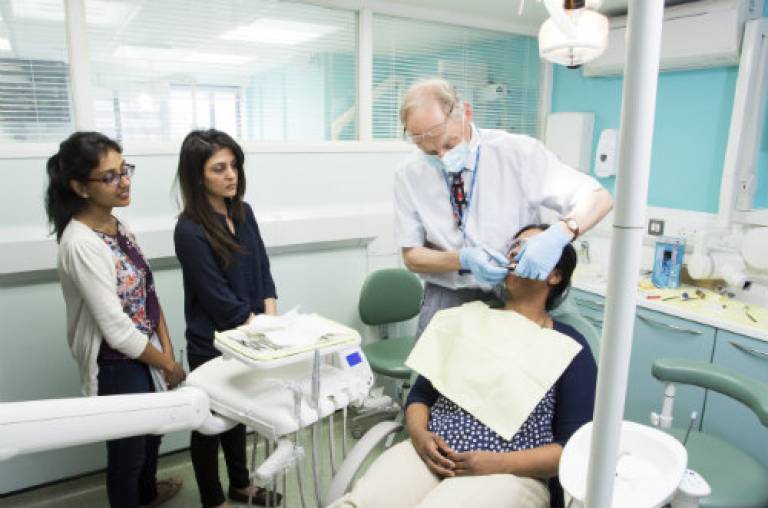How to support postgraduates in their learning
Professor Susan Cunningham (UCL Eastman Dental Institute) recently received a Provost's Excellence Award for Collegiality earlier this year.

24 February 2016
She is currently Programme Director for the MClinDent postgraduate programme in Orthodontics, which is one of the largest programmes of its kind in Europe.
What does your award recognise?
I was put forward for the award by Professor Stephen Porter, Director of the UCL Eastman Dental Institute, for giving a consistently supportive learning environment for our postgraduate students (the department is postgraduate-only).
I focus on our students' personal and professional development.
I make it clear to them that they are able to approach anyone in the department - I have an open door policy which has been an important part of this, particularly with the high number of international and mature students we host.
How have you achieved this?
We offer an enjoyable approach to lifelong learning, we introduce our students to different approaches and problem solving and learning.
I encourage them not to be afraid of discussing their patients with staff and to ask for advice. It is important that students feel supported in all aspects of providing patient care. We hope this contributes to an ongoing dialogue about best clinical practice when they leave UCL.
A significant part of their teaching time involves clinical work which is complemented by independent research.
I am aware that aside from their undergraduate study, which may have been several years before, they may be unfamiliar with how to go about independent research so the programme has a strong focus on building their ’soft skills’, through discussions on topics such as research writing and reviewing literature.
What feedback have you received from students?
We ensure their regular feedback and our annual student experience survey has enabled us to change the programme on the basis of what students find useful or suggest would be beneficial.
We maintain very strong links with many of our graduates, even those working internationally.
We recently had a UCL alumni lunch and many attendees, now working internationally, commented on the benefits of the support they had received and how useful it has been to work independently. They often mention how they felt prepared for life after the programme and for the life learning that follows.
Many of our students come to the Eastman through ‘word of mouth’ so it is clear to see that our students’ experience contributes to our established reputation.
What do you think students want from their UCL experience?
We need to consider how we can offer a competitive edge; we can go some way to providing that with as much of a personalised learning experience as possible.
What advice would you give to someone looking to develop the way they teach?
Be open to ideas from senior/junior staff and the students themselves and to new ways of teaching.
One practice we have trialled is 'flipped learning’, which is not necessarily intuitive to clinical teaching.
Although I knew the students would enjoy a new and interactive way of learning, I was surprised at how much I enjoyed it too.
The students undertake do preparoty work or watch a pre-recorded lecture and then send in questions before their class and this forms the basis of our seminars. The extra time gives us the chance to create ’themes’ and tackle the subject matter in smaller groups.
The students enjoy this new approach and it is a good way of exposing them to new types of learning and, in the context of discussion, to know that it’s OK to challenge and debate.
 Close
Close

